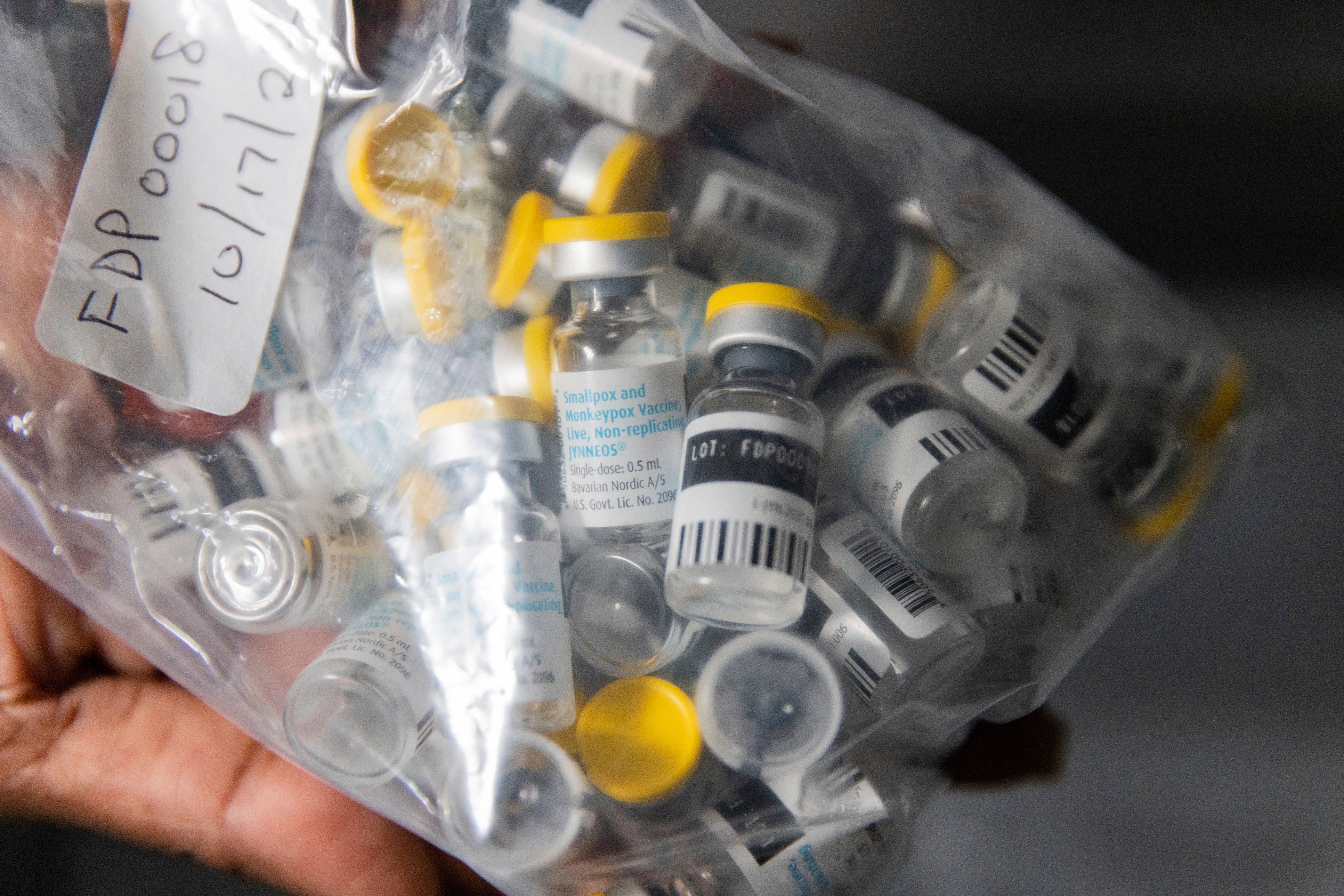UN confirms sexual spread of mpox in Congo for the 1st time as country sees a record outbreak
The World Health Organization said it has confirmed sexual transmission of mpox in Congo for the first time as the country experiences its biggest-ever outbreak

The World Health Organization said it has confirmed sexual transmission of mpox in Congo for the first time as the country's experiences its biggest-ever outbreak, a worrying development that African scientists warn could make it more difficult to stop the disease.
In a statement issued late Thursday, the U.N. health agency said a resident of Belgium traveled to Congo in March and tested positive for mpox, or monkeypox, shortly afterward. WHO said the individual “identified himself as a man who has sexual relations with other men” and that he had gone to several underground clubs for gay and bisexual men.
Among his sexual contacts, five later tested positive for mpox, WHO said.
“This is the first definitive proof of sexual transmission of monkeypox in Africa,” Oyewale Tomori, a Nigerian virologist who sits on several WHO advisory groups, said. “The idea that this kind of transmission could not be happening here has now been debunked."
Mpox has been endemic in parts of central and west Africa for decades, where it mostly jumped into humans from infected rodents and caused limited outbreaks. Last year, epidemics triggered mainly by sex among gay and bisexual men in Europe hit more than 100 countries. WHO declared the outbreak as a global emergency, and it has caused about 91,000 cases to date.
WHO noted there were dozens of “discrete” clubs in Congo where men have sex with other men, including members who travel to other parts of Africa and Europe. The agency described the recent mpox outbreak as “unusual” and said it highlighted the risk the disease could spread widely among sexual networks.
WHO added that the mpox outbreak this year in Congo, which has infected more than 12,500 people and killed about 580, also marked the first time the disease has been identified in the capital of Kinshasa and in the conflict-ridden province of South Kivu. Those figures are roughly double the mpox toll in 2020, making it Congo's biggest-ever outbreak, WHO said.
Virologist Tomori said that even those figures were likely an underestimate and had implications for the rest of Africa, given the continent's often patchy disease surveillance.
“What's happening in Congo is probably happening in other parts of Africa,” he said. “Sexual transmission of monkeypox is likely established here, but (gay) communities are hiding it because of the draconian (anti-LGBTQ+) laws in several countries,” he added.
He warned that driving people at risk for the virus underground would make the disease harder to curb.
The mpox virus causes fever, chills, rash and lesions on the face or genitals. Most people recover within several weeks without requiring hospitalization.
WHO said the risk of mpox spreading to other countries in Africa and globally “appears to be significant," adding that there could be “potentially more severe consequences” than the worldwide epidemic last year.
Tomori lamented that while the mpox outbreaks in Europe and North America prompted mass immunization campaigns among affected populations, no such plans were being proposed for Africa.
“Despite the thousands of cases in Congo, no vaccines have arrived,” he noted. Even after mpox epidemics subsided in the West, few shots or treatments were made available for Africa.
“We have been saying for years in Africa that monkeypox is a problem," he said. “Now that sexual transmission has been confirmed here, this should be a signal to everyone to take it much more seriously.”
___
The Associated Press Health and Science Department receives support from the Howard Hughes Medical Institute’s Science and Educational Media Group. The AP is solely responsible for all content.
Bookmark popover
Removed from bookmarks